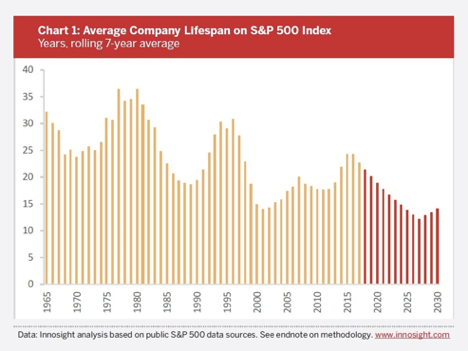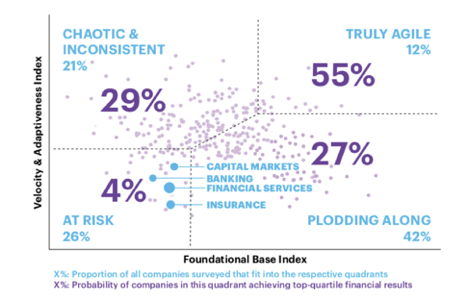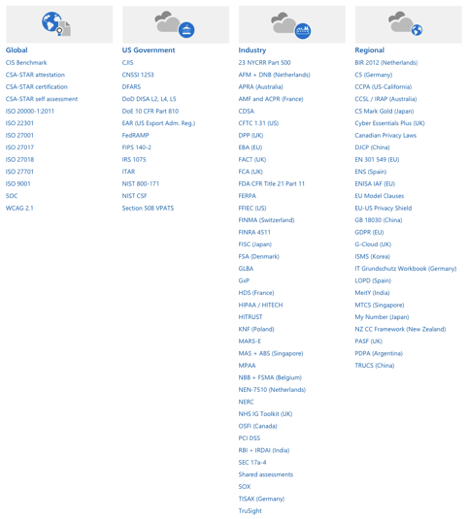What Is a Virtual Data Room Software (VDR) and Why Is It So Powerful?
Virtual data room, or VDR, is a hot topic in today’s business world, with the market predicted to expand by 15.12% CAGR between 2019 and 2024 according to Business Wire. You don’t have to look far to see that enterprises are increasingly adopting virtual data rooms, and more and more vendors keep appearing on the scene to offer VDR software as the number of due diligence and auditing situations keeps rising.
What is a virtual data room?
Virtual data room is an online repository used for the storing and distribution of documents in due diligence processes e.g., during M&As and audits. Virtual data room is often abbreviated simply as VDR, and sometimes called deal room or just data room.
But what's the fuss about VDRs? Well, there’s a reason why data room software is having more than just a moment in the spotlight. The current business environment is tough, which serves to underline the importance of having everything in place so you can make bold moves quickly.
How volatile is today’s business landscape? Over 50% of small businesses fail within four years of opening. Even the most successful companies are increasingly likely to go under, given that over half of the companies on the S&P 500 list disappeared in the last 15 years, and half of those currently on it could follow suit in the next decade, according to Innosight’s analysis.

Image source: https://www.innosight.com/insight/creative-destruction/
In these conditions, facing increased competition from globalized markets, the ever-growing speed of business, rising regulations, and the challenge of digitalization, corporate management needs to be ready to react to new opportunities and shifting market forces.
In fact, business agility is one of the most powerful predictors of profitability and longevity. Accenture recently found that while only 12% of companies are truly agile according to the consultancy’s velocity and adaptiveness index, these companies are far more likely than all others to achieve top-quartile financial results.

Image source: https://talentorganizationblog.accenture.com/financialservices/talking-agility-the-paradox-of-true-agility-with-michael-bazigos
VDRs bring value to a number of corporate file sharing situations, including internal file sharing, for projects and data-driven business decision-making; external file sharing to nurture relationships with partners and clients; and providing due diligence to tax and compliance auditors, financiers, potential M&A partners, and other interested third parties. For instance, many VCs are in search of a data room for investors.
They help corporate bodies remain prepared for compliance and financial audits and due diligence reviews of all aspects of the company, operations, and governance.
But what exactly is a virtual data room, and what aspects of VDRs make them so powerful for corporate file sharing?
What is the history behind virtual data rooms?
Once upon a time, in the days before digitalization, enterprises used physical data rooms in merger and acquisition situations that were the archive for all their sensitive business documents that are critical to company value. Anyone who wanted to consult a document had to book a time when they could enter the room and scour the documents.
Data rooms held the original hard copies of e.g.:
- Documents of incorporation, and all documents relating to shareholders, stock options, and purchase plans
- All the important financial information pertaining to the company
- Board meeting minutes as well as minutes from shareholder meetings and executive team meetings
- Vital contracts relating to sales, purchases, employment partnerships, joint ventures, officers, shareholders, loans, banks, and more
- Intellectual property rights documents, including patents, trademarks, and copyrights
- Licenses and permits, including insurance certificates and mortgage documents
It was a way of keeping important documentation in a single, trackable location, and retaining control over who could access it.
Today, data room software have moved to the cloud. Also called VDRs and deal rooms, these modern-day data rooms are an online, secure repository for all the files, documents, and data that a business wishes to safeguard.
Given that the modern VDRs are cloud-hosted, they can be accessed from anywhere in the world, from any device, and they boast powerful security features to protect documents within and control who can access them.
To give you a sense of how extreme VDR security has become, Microsoft Azure, which hosts ContractZen’s VDR data room, today supports over 90 separate compliance certifications.

Image source: https://docs.microsoft.com/en-us/microsoft-365/compliance/offering-home
Why do businesses need virtual data rooms? Here are some of the top reasons, use cases, and benefits that we’ve noticed here at ContractZen.
Data is the lifeblood of business
Data is the lifeblood of all businesses, but particularly of large corporations that eat data for breakfast, lunch, and dinner.
Growth-focused companies rely on data for speed and agility. Data is the basis for every sound business decision in every company, from which products to market to which day of the week to release the next big company announcement, and it keeps on multiplying.
With so many documents, content, reports, and other data sources, businesses desperately need to keep track of their critical documents.
Silos block the flow of data. While data is vital to business, it’s useless when it’s locked up in silos. Companies have to make their data accessible to a whole host of individuals, including in-house employees, remote workers, and external consultants, so that everyone concerned can find the information they need quickly and easily.
When you consider that 70% of employees feel overwhelmed because of broken communication and fragmented information, according to a study from Firstup (former Dynamic Signal), you realize that access to information is a foundation of a successful business. Additionally, business data needs to be easily shareable with external parties. This includes business partners, potential clients, and companies that might employ the business, all of whom desire to check that the company in question is above board and legitimate. It also encompasses representatives from tax authorities and other regulatory boards conducting audits.
In the 21st century, sending physical files across the country by courier is laughable, and traveling to visit one another’s premises is likewise to be avoided whenever possible. Businesses need a digital alternative that’s fully accessible, whether from the next office or the other side of the globe. Our age of BYOD requires data to be stored in a central location that can be accessed from any device, not siloed on personal computers or servers.
VDRs pick up the pace of file sharing
In today’s business world, partnerships, mergers and acquisitions, and other strategic business decisions are often made at the speed of light. Slowness is a crime that’s punished by missing out on the best business opportunities.
An all-in-one governance software like ContractZen enables companies to keep up with the pace of business by having critical documents readily available at all times, making it possible to create a new data room with a couple of clicks when needed and index the data dynamically using smart tagging. Moreover, the data room table of contents, or data room index, is also created automatically. This is what makes ContractZen an ideal virtual data room solution for many.
What is more, when your documents are readily available, it increases the trust between the two parties, smoothing the path of business even more.
File sharing doesn’t need to be at odds with security
The demands of easy access to data may seem to conflict with the ever-rising obligation to keep those files secure. Compliance regulations keep rising as hackers become more determined than ever to breach business walls.
Companies face a dilemma: they need to share files quickly and remotely, but without giving up on data security. This is the challenge of today’s corporate governance.
It’s a dilemma that virtual data room solutions like ContractZen come to solve. Here’s our take on what makes for the best balance:
- Using ad hoc VDRs, files can be organized logically, speeding up the process of locating the right document. Tags, keywords, and optical character recognition search functionality make it easy to find files that need to be added.
- Individuals can access all the files and data stored within it anywhere and anytime with their web-enabled device.
- Powerful access permissions on a VDR allow for granular level control over who can read and download which files. Access can be granted and retracted with a single click, enabling a business to retain oversight of their own data.
- Strong, built-in security features include encryption, web fencing, and activity tracking, in order to prevent abuse or misuse of the VDR.
- VDR users can ask questions about documents and clear up confusion directly within the relevant document, without leaving the VDR. This helps avoid nested email threads and misplaced replies.
Virtual data room enables safe file sharing at the speed of business
Thanks to modern VDR services with high-security features, streamlined organization, powerful search functionality, strong access controls, and activity tracking, organizations can vastly improve their agility and create a secure virtual environment through which files can be shared with any internal or external party.
The ability to provide instant, secure access to files from any device, anywhere in the world, makes file sharing painless, and explains the popularity of VDRs.



